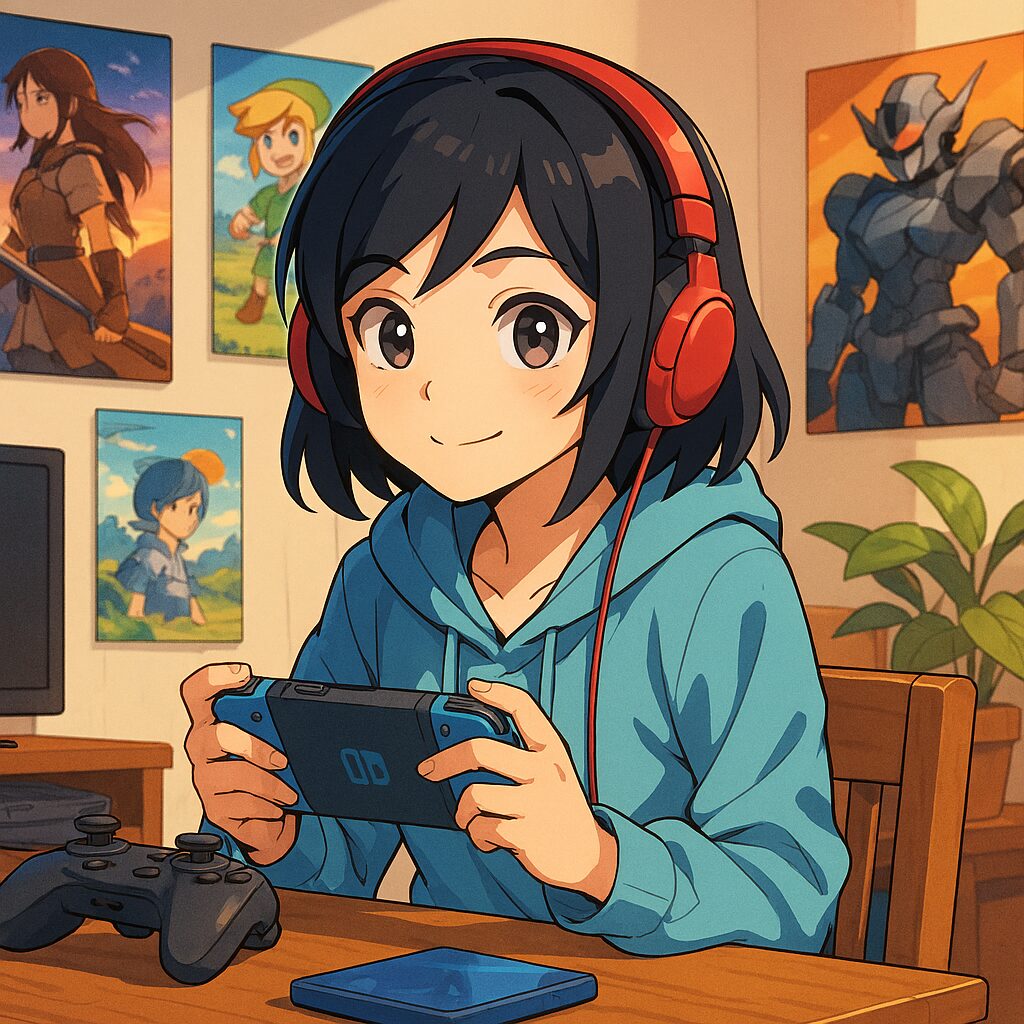- Introduction: Game as a Cultural Dialogue
- Chapter 1: The 1980s – Famicom and the Rebirth of Play
- Chapter 2: The 1990s – When Games Found Their Soul
- Chapter 3: From Local Artistry to Global Phenomenon
- Chapter 4: Why the World Loves Japanese Games
- Chapter 5: 5 Essential Titles to Experience Japanese Game Culture
- Chapter 6: Looking Ahead – AI, Indie Games, and the Future of Emotion
- Conclusion: Japan’s Quiet Power in Global Gaming
Introduction: Game as a Cultural Dialogue
In Japan, video games have long transcended the boundaries of mere entertainment. They serve as immersive art forms, philosophical mirrors, and emotional spaces. Through gameplay, players aren’t just clicking buttons—they’re engaging in quiet conversations with space, silence, time, and memory.
This article explores the history, distinctiveness, and international resonance of Japanese games, revealing why they continue to captivate hearts across cultural borders.
Chapter 1: The 1980s – Famicom and the Rebirth of Play
Nintendo’s 1983 release of the Family Computer (Famicom) revolutionized the way Japan—and eventually the world—experienced games. Suddenly, living rooms became portals to new worlds.
🌟 Iconic Titles
- Super Mario Bros. (1985): A jump is more than a mechanic—it’s joy incarnate. The game’s intuitive design allowed anyone to play, regardless of age or background.
- Xevious (1983): Beyond reflexes, this title offered subtle storytelling and AI-driven enemy behavior.
- Donkey Kong: A character-based arcade classic that helped Nintendo conquer the American market.
These weren’t just games. They were emotional frameworks wrapped in pixels and sound.
Chapter 2: The 1990s – When Games Found Their Soul
As technology advanced, Japanese games developed deeper narratives, reflective of complex emotions and even socio-philosophical themes.
- Final Fantasy VII: Death, memory, and ecological destruction were woven into gameplay, shifting RPGs into existential territory.
- The Legend of Zelda: Ocarina of Time: Time travel wasn’t just a mechanic—it became a meditation on impermanence, framed by minimalism and silence.
- Chrono Trigger: Decisions mattered, and players confronted alternate realities based on their own moral choices.
These titles turned players into co-authors of layered, moving stories.
Chapter 3: From Local Artistry to Global Phenomenon
Japanese developers soon entered the global stage, balancing universal accessibility with deeply Japanese values.
- Pokémon: With its emphasis on growth, care, and emotional bonds, the franchise served as an entry point to Japanese culture for children worldwide.
- Monster Hunter: Rather than focusing on domination, it celebrated teamwork, persistence, and respect for nature.
- Dark Souls: A relentless cycle of failure and rebirth mirrored Buddhist notions of impermanence and suffering.
By honoring collaboration, silence, and introspection, Japan offered the world a new kind of heroism.
Chapter 4: Why the World Loves Japanese Games
The enduring global fascination with Japanese games lies in their emotional nuance and cultural DNA.
💠 1. Language-Agnostic Design
Games like ICO and Journey rarely use dialogue. Instead, their strength lies in atmosphere and gesture—allowing people across linguistic divides to feel deeply connected.
👉 Related article: 🧘♂️ The Aesthetics of Silence: How Rei and Ma Shape Japan’s Wordless Communication
💠 2. Acceptance of Ambiguity
Western narratives often center on overcoming clear obstacles. Japanese games, like NieR:Automata, pose existential questions—offering no easy answers and instead inviting contemplation.
💠 3. Gentleness and Growth Over Violence
While many global games focus on conquest, titles like Animal Crossing prioritize nurturing relationships, celebrating seasons, and enjoying a life of quiet meaning.
Chapter 5: 5 Essential Titles to Experience Japanese Game Culture
| 🎮 Title | Highlights | Cultural Significance |
|---|---|---|
| The Legend of Zelda: Breath of the Wild | Open-world, serenity, silence | Celebrates discovery and stillness |
| Ghost of Tsushima | Samurai ethos, visual beauty, honor | Reflects Japanese aesthetics, even as a Western production |
| NieR:Automata | Philosophy, AI, mortality | Explores human contradictions and impermanence |
| Animal Crossing | Community, lifestyle, patience | Invites slow living and emotional bonding |
| Undertale | Choices, morality, kindness | Embodies nonviolence and empathy, mirroring Japanese ideals |
Chapter 6: Looking Ahead – AI, Indie Games, and the Future of Emotion
- AI Integration: Japanese developers are beginning to adopt AI that learns from players’ emotions to shape dynamic narratives.
- Indie Resurgence: Small teams are exploring pure artistic expression—titles like Touhou Project gain global cult followings.
- Emotional Depth: Future Japanese games aim not for bigger worlds, but for deeper ones.
Games will no longer be about winning—they’ll be about understanding.
Conclusion: Japan’s Quiet Power in Global Gaming
Japanese games speak with quiet voices and offer loud emotional truths. Their stories rarely shout. But they linger in players’ hearts long after the console is turned off.
They offer what the world sorely needs: slowness, care, complexity, and reflection.
Across time zones and languages, these digital landscapes have become bridges—connecting cultures, minds, and emotions.



コメント